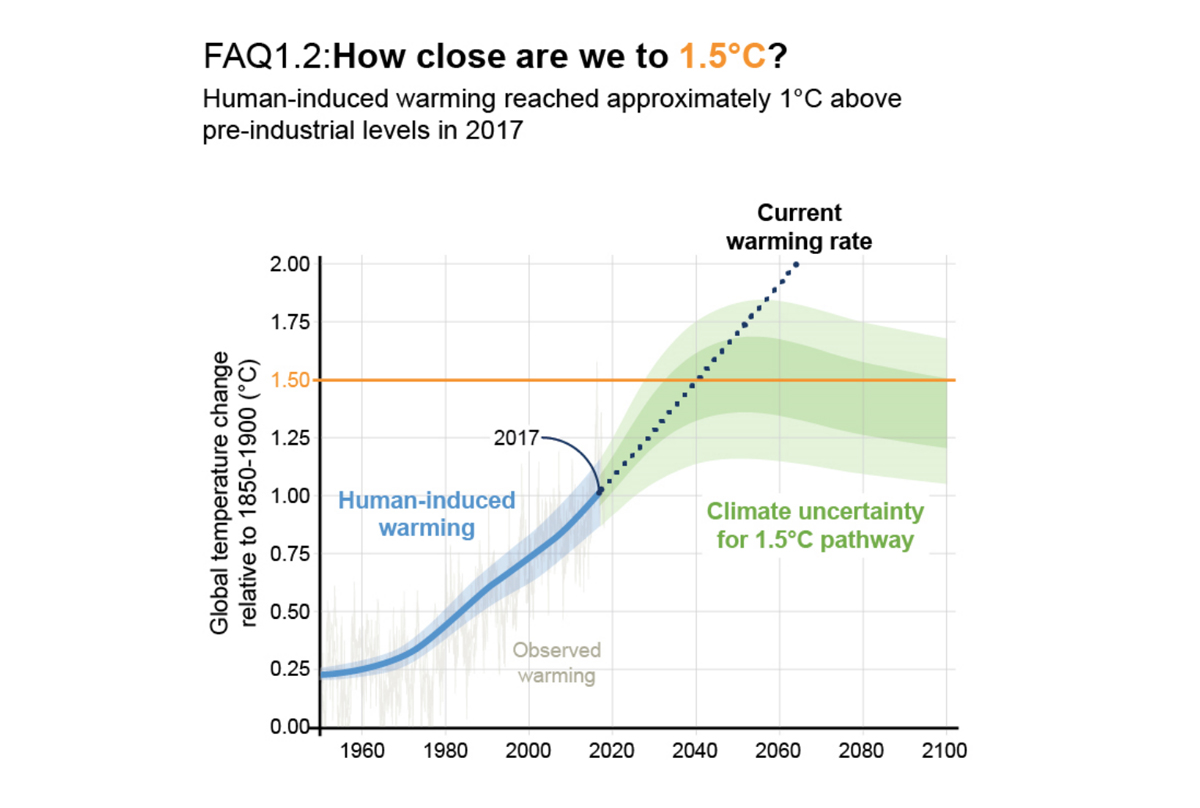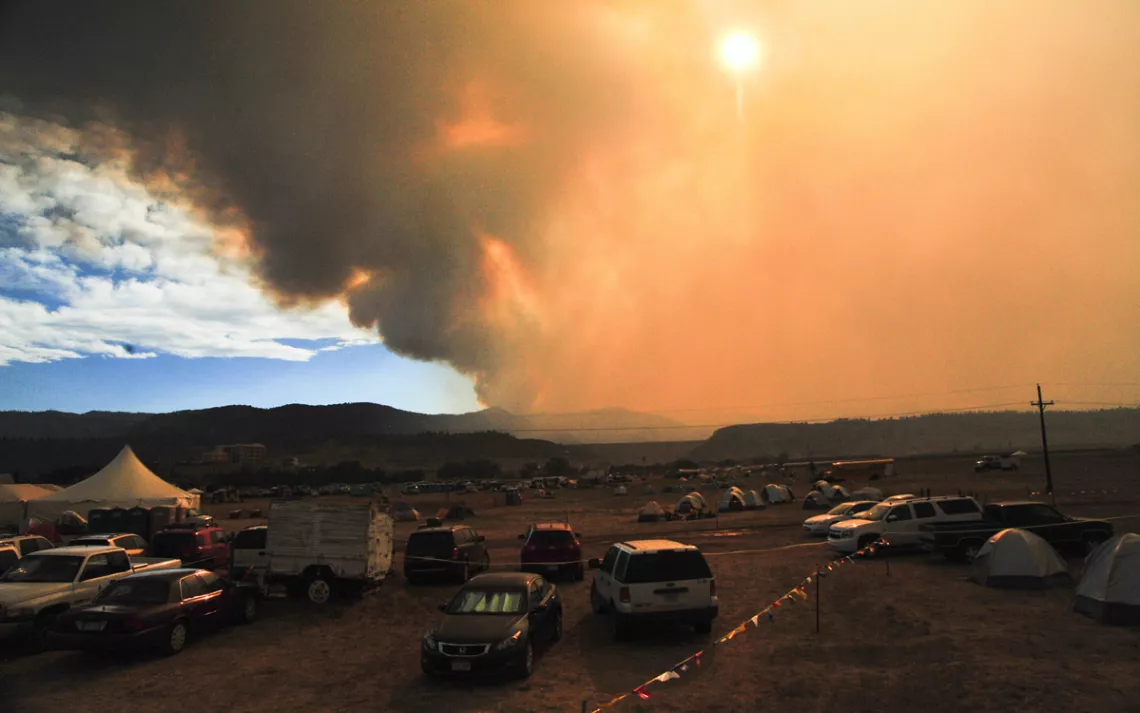Climate Change: Even Worse Than We Thought
Things to get very gnarly by 2040, IPCC writes
Humans can still prevent the worst effects of climate change, says the newest report from the Intergovernmental Panel on Climate Change (IPCC). But we have less time than anyone hoped to undertake a dramatic and speedy transformation of the global economy that, the IPCC scientists concede, has “no documented historic precedent.”
While the countries that signed on to the Paris Agreement promised to work together to prevent atmospheric warming of more than 3.6°F (2°C), the IPCC report released Sunday concludes that the dire effects predicted to happen at 3.6°F are likely to occur much sooner, at 2.7°F (1.5°C).
That means those dire effects are not far away. The atmosphere has, on average, warmed 1.8°F since the Industrial Revolution (with the majority of that caused by an exponential growth in the use of oil, gas, and coal after the 1950s). If greenhouse gas emissions continue at their current rate, atmospheric warming will reach 2.7°F around 2040—a little over 20 years from now.

In this scenario, 2040 will not be a great time to live. The world’s coral reefs will have declined by 70 to 90 percent from their current levels. Many marine and coastal ecosystems will have crashed beyond the point of recovery. The famines, floods, heat waves, polar vortexes, wildfires, hurricanes, and tropical cyclones that have dominated the news recently will increase in number and ferocity.
All of the report’s warnings are couched in very careful, scientific language, because the IPCC is a very cautious, scientific group. It was created by the United Nations Environmental Programme and the World Meteorological Organization in 1988 to serve as a trusted source of information about climate change.
The group’s reports are written by volunteer scientists from around the world who synthesize their conclusions from thousands of peer-reviewed studies. The synthesis is slow, thorough, and involves a lot of consensus-based decision making (consensus doesn’t absolutely have to be reached on every statement in the report, but the scientists involved do have to agree the science behind each statement is accurate).
This gives the IPCC an unusual reputation. Some climate researchers have often accused the IPCC of actually being too mild in its assessment of the danger we’re all in, but that hasn’t stopped the Koch brothers from spending hundreds and thousands of dollars on a team of workers whose express job was to discredit the IPCC and its work.
Meanwhile ExxonMobil brags on its own website that “Experts from our organization have participated in the United Nations Intergovernmental Panel on Climate Change (IPCC) since its inception. Most recently, our scientists contributed to the IPCC Fifth Assessment Report in lead author, review editor, and reviewer roles.” During a climate change lawsuit courtoom hearing earlier this year, both sides used an earlier IPCC report to justify their case.
In order to keep temperatures worldwide from rising any higher, writes the IPCC, emissions need to decline rapidly across all of society’s main sectors, including buildings, industry, transport, energy, and agriculture, forestry, and other land use. Coal needs to go. Transportation needs to be electrified. Buildings need to become more energy efficient. Carbon taxes need to start at $135 per ton at the low end (currently, it’s $7).
Carbon capture and storage using technology is worth further research but doesn’t yet work at the kind of scale that would make a difference (for one thing, it uses energy and needs to be connected to a concentrated source of pollution in order to make that energy use worthwhile). On the other hand, the IPCC notes that protecting and restoring natural systems such as forests to capture and store carbon can play an immediate key role in slowing catastrophic global warming past 1.5 degrees Celsius.
Societies have made dramatic shifts like this before, the IPCC states, especially when it comes to adopting new technologies. But this would be the biggest. “While the pace of change that would be required to limit warming to 1.5°C can be found in the past,” writes the IPCC, "there is no historical precedent for the scale of the necessary transitions, in particular in a socially and economically sustainable way.” According to the IPCC report, though, doing nothing will also place us in a reality with no historical precedent, as soon as 20 years from now.
Action or inaction—both will land us in an unprecedented future.
This article has been updated since publication.
 The Magazine of The Sierra Club
The Magazine of The Sierra Club




